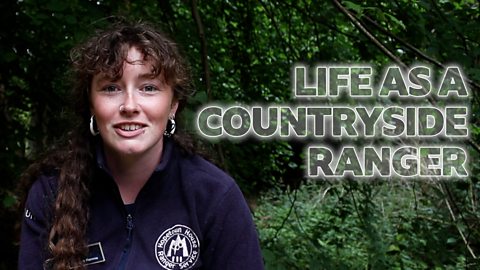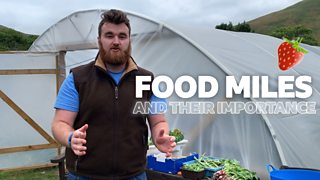Helping to make a more sustainable world - my life as a countryside park ranger
By Hanna Rennie // 大象传媒 The Social Contributor // 2 Sept 2021
My conservation journey started only a few years ago when I was working as a tour guide in Berlin. I moved there after completing a degree in languages and fell into guiding as a way to explore the city and earn some money. As I became increasingly aware of the impacts of tourism on Berlin – both the good and the bad – I started learning more about the concept of sustainable tourism, climate change mitigation and biodiversity conservation. I felt the desire to contribute what I could towards saving the environment!
So, in October 2017 I packed my bags, bid a fond “see ya” to the life I’d built abroad, and set my sights on becoming a countryside ranger, back home in Scotland.

Life As A Countryside Ranger
鈥淭o know that everything you鈥檙e doing is helping nature in some way is really fulfilling鈥�
Four years on, a Countryside Management HND and countless hours to outdoor volunteering work later, I’m Seasonal Ranger at Hopetoun House, doing what I can to ensure this wee bit of the world is healthier, happier, and more sustainable than when I found it.
There’s so much to love about being a countryside ranger. Every day is different, and most days I can’t believe I’m actually getting paid to do what I do! From practical management tasks, to working with incredible volunteers, to counting butterflies, bumblebees, and house martins, to chatting with visitors and sharing the amazing built and natural heritage of Hopetoun House and grounds with them - it’s a hugely rewarding role.
I’ve found that being in the outdoors for a living is also incredibly beneficial for my own physical and mental health. Being generally more tapped into your natural surroundings can be very humbling and does wonders for reducing stress and anxiety levels. When you really take notice of the natural world around you – a freshly bloomed flower or a buzzard soaring overhead – it can be amazingly reassuring and grounding.

However, that’s not to say the life of a ranger comes without its challenges. Being acutely aware of the magnificence of the natural world also goes hand in hand with being painfully exposed to its vulnerability, as the Global North (the richest and most industrialised countries) lead increasingly unsustainable lifestyles at the expense of the very ecosystems that ensure our survival.
Recent reports from the Intergovernmental Panel for Climate Change (IPCC) that climate change is “widespread, rapid and intensifying”, have struck those working in the conservation industry particularly hard. It can be difficult to keep up the fight for nature when governments, large organisations and others who can make a difference, seem to close their ears to the truth of the matter.
But there is hope! In 2019, a survey found that 85% of UK adults were worried about the climate crisis . The COVID-19 pandemic has forced so many of us to realise the endless benefits with which the natural world provides us, and we are waking up to the very real and imminent crisis our wildlife and the environment are facing. Most importantly, we’re starting to do something about it, by adopting more sustainable lifestyles, and holding those who contribute the most to environmental degradation accountable.
I鈥檝e found that being in the outdoors for a living is also incredibly beneficial for my own physical and mental health. Being generally more tapped into your natural surroundings can be very humbling and does wonders for reducing stress and anxiety levels.
Another challenge of being a ranger in Scotland is the role’s precarity. As an industry that currently does not generate a great deal of economic profit (although the health and social profits are huge!), many ranger positions are reliant on governmental and/or charitable funding streams. This has resulted in many jobs being seasonal, fixed term and minimum wage, which is a challenging foundation upon which to build a career. But the magic of being a ranger is that you end up knowing a little bit about a lot of things, which means many career paths can be available to you - ecology, the voluntary and community sector, teaching, training, policy-making... to name a few!
It’s difficult to say where my role as a countryside ranger could take me in the future – I would never have guessed back in 2016, as I was telling a group of tourists all about the fall of the Berlin wall, that five years from then I’d be leading a group of volunteers in rhododendron ponticum removal tasks in the grounds of Hopetoun House!
In that respect, the best skill to have as a countryside ranger is the ability to keep an open mind and a panoramic view of your future.
This is also perhaps what drives the resilience and dedication of those working within the environmental industry – despite everything, we tirelessly continue making our wee bit of the world healthier, happier, and more sustainable than when we found it.




